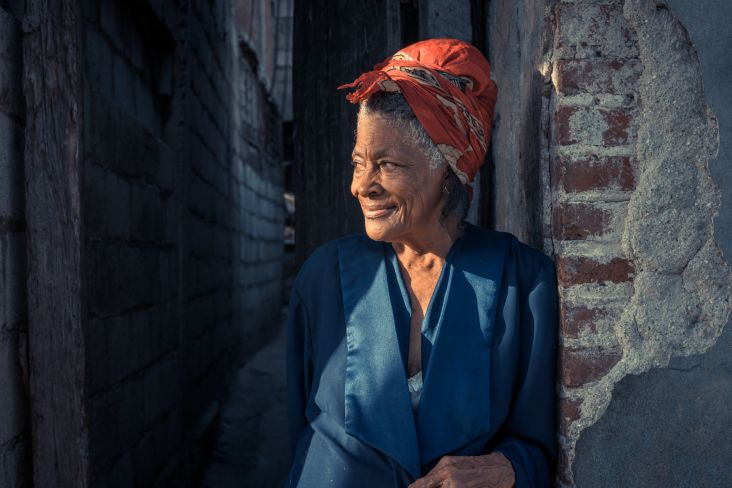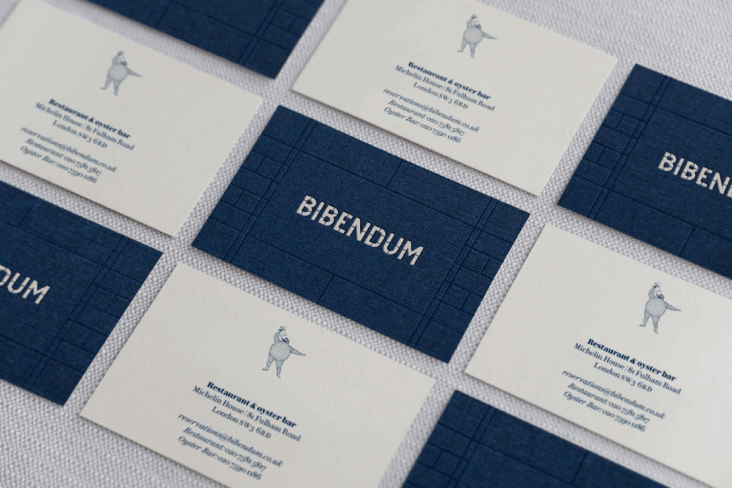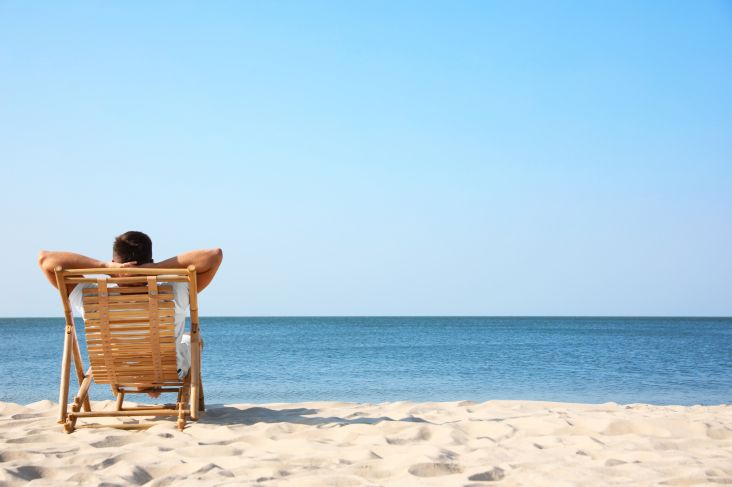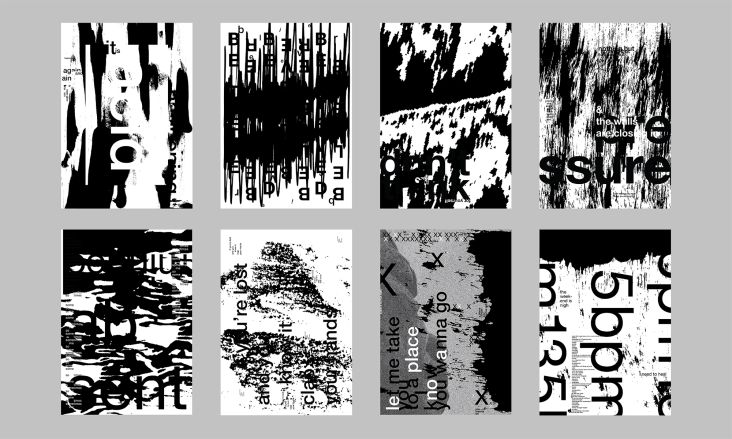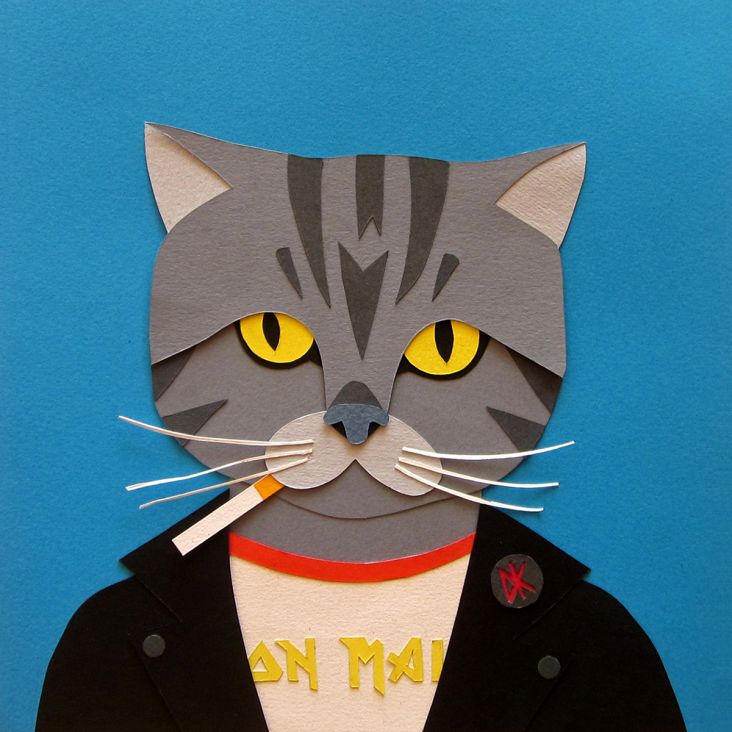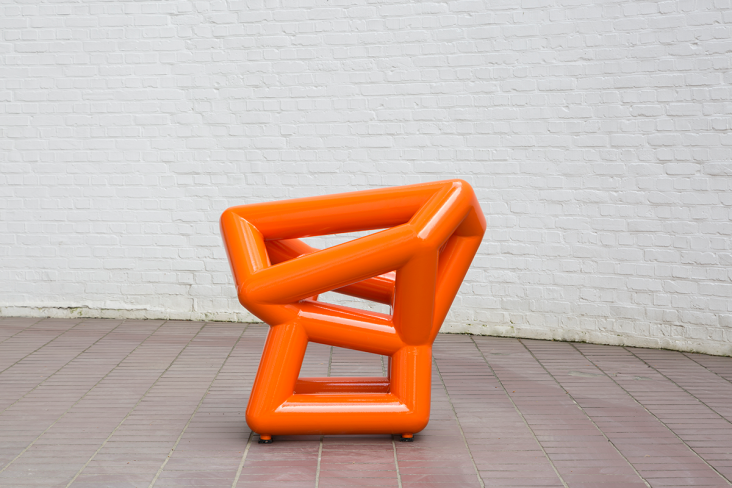Lisa Maltby on freelancing, difficult clients and why it's always important to help others
An illustrator, designer, and lettering artist, Lisa Maltby is an award-winning freelancer from Sheffield who went solo after many years working for agencies – mainly because she wanted to have more freedom to be creative.
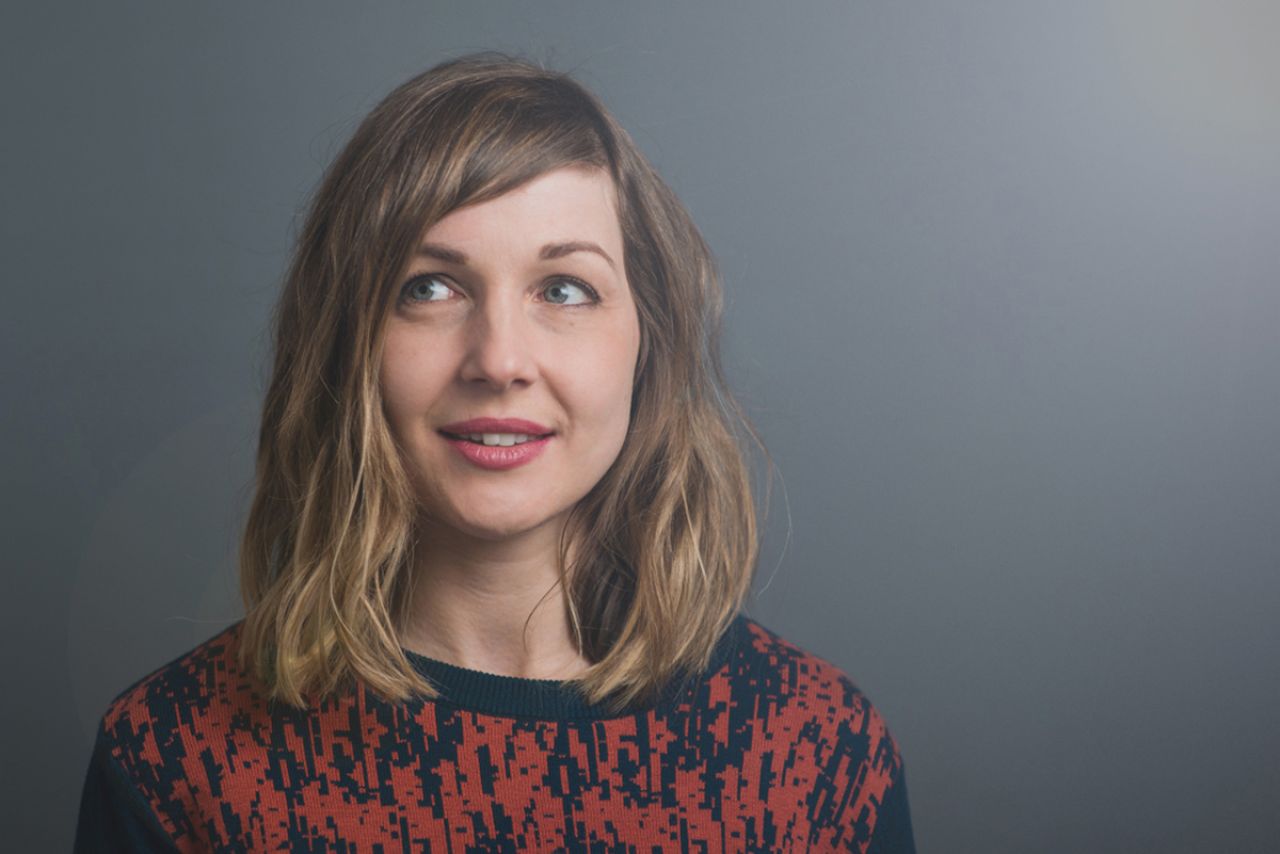
Certainly, if you browse her website, you'll see there's a diverse range of projects, spanning everything from editorial and design to advertising and publishing, with notable clients including Topshop, Waitrose, and Weightwatchers.
Aside from freelancing, she's also on a mission to challenge ideas and methods, as well as support others who might be thinking of starting their own business. Her blog is full of honest wisdom and wit on entrepreneurship – a lot of which will resonate with you, and make you smile.
She attracted loads of attention when we shared her typographic art on creative put-downs from clients last year. Now you can enjoy our chat with Lisa and discover more about how she got started, what she thinks of freelancing and why she loves to help others in the creative industries.
Tell us about your career – where did it all begin? And what led you to become a freelance designer?
I think as an artist the boundaries get blurred between life and work because your ideas invade life, or life invades your ideas, whichever way you look at it. In that sense I’m not sure when to pinpoint a start, other than knowing I always wanted to do something creative.
As a creative person, you’re not limited by circumstances – if anything the best projects can come out of the most mundane situations: I once worked at a supermarket and would draw the funny customers as a sort of means of survival.
I did an Illustration degree at Loughborough University but I struggled to work freelance after graduating – I found it daunting and realised that perhaps some commercial experience would be beneficial. I worked as a graphic designer for a number of years which was great, but I was frustrated not being able to explore other areas of my work, and so although I always worked on side projects I decided to go freelance full time.
How did you survive that first year of going solo? Any treasured bits of wisdom you can share?
To be honest, starting out was strangely easy – it was the decision to bite the bullet and quit my job that was harder. Once I'd made the step the work came in organically because I'd spent a long time building up connections. You realise a huge part of it is about who you know and who can recommend you – if people like you and know you’re reliable that counts for far more than a perfect portfolio.
I had a sort of honeymoon period where I stayed up all hours working on stuff and trying to push doors, then I crashed and burned and realised I needed to have better boundaries. I’ve learned that there’s never a point when you feel like you’ve made it – you always feel a bit of an imposter and the sooner you accept that the freer you are to experiment and develop your work.
I use every opportunity to learn from other people – you realise even the most confident and established creatives battle with self-doubt. If I ever get to the point where I stop asking questions I know I’m doing something wrong – I never want to stop asking questions.
What do you love about working for yourself?
I love being allowed not to be a morning person! I can choose how to structure my week and work when I am most productive – I get way more done than when I worked a token 9-5. I love having space to invest in the things that are important to my business – working on personal projects, writing articles, networking with others, giving talks and visiting exhibitions. Instead of those things taking away from my main body of work, they all contribute to it.
And what do you dislike?
It’s a struggle to keep a healthy balance of being both personable and assertive because you are both a person and a business at the same time. One minute you are talking about holidays with a client and the next you are confronting an unpaid invoice.
It’s also quite a challenge being the only person you’re accountable to and making decisions on your own – you can sometimes feel like you’re missing out on a shared vision. I think that’s why it’s important to work with the right people – jobs are always more successful when there is mutual respect and you’re able to work collaboratively in order to get the best outcome on a project.
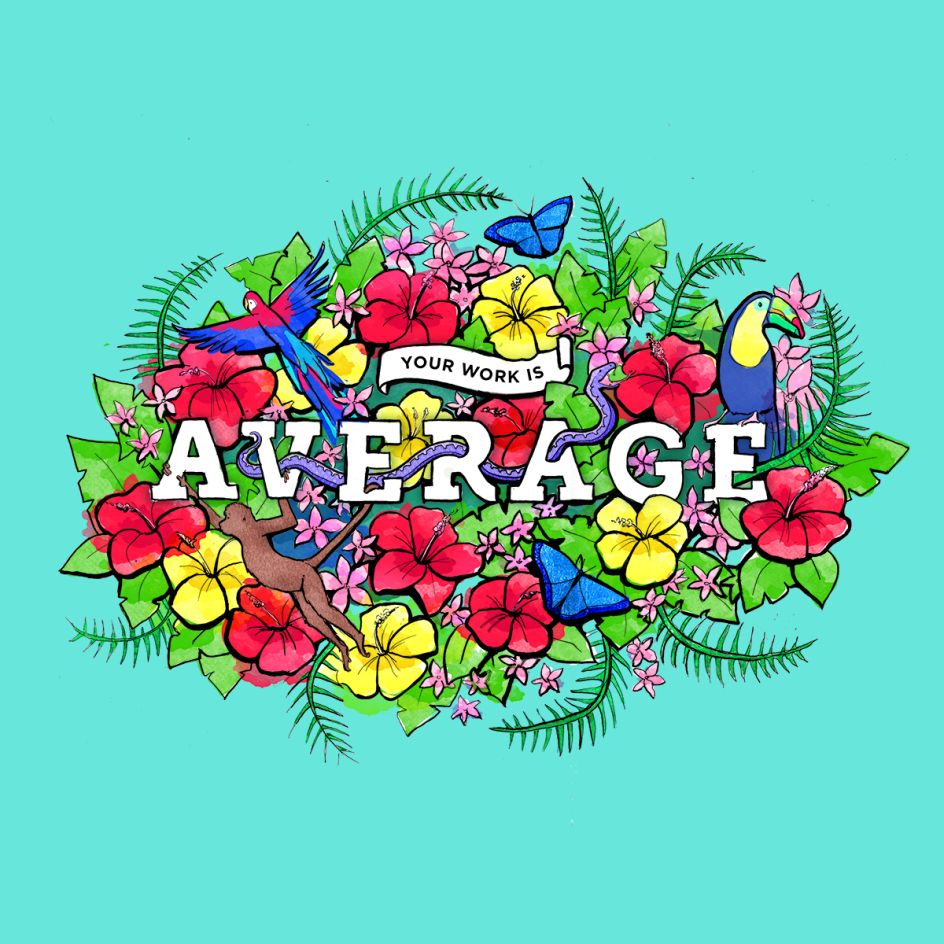
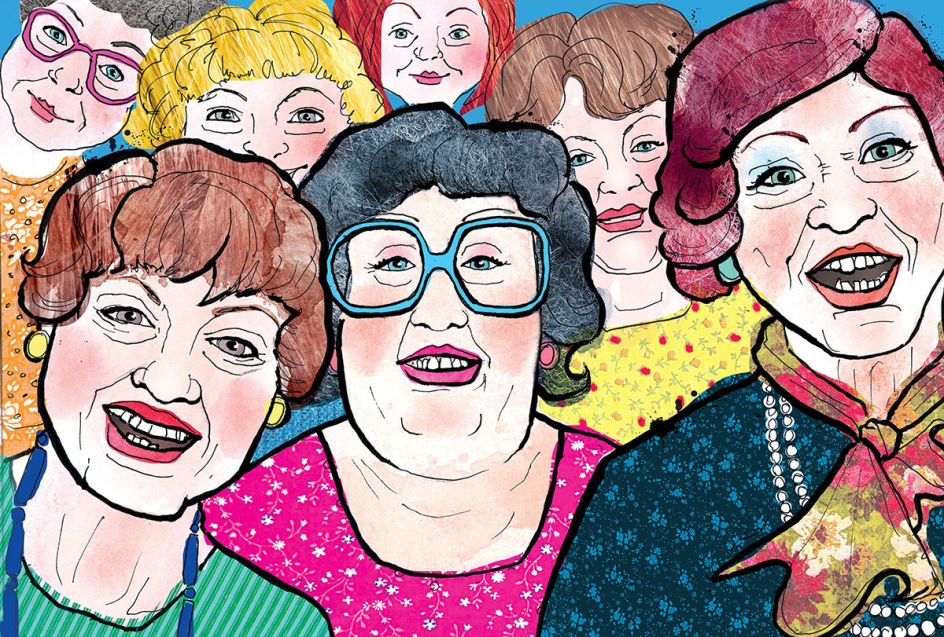
One of the hardest things to get right as a freelancer is pricing – have you achieved this? If so, how?
I wrote a blog post on this subject and the response was overwhelming – I realised just how little the issue of pricing is talked about and how little help there is for creatives when working out prices. Creative work is often hard to quantify and every job is very different – pricing work is a learning curve like anything else in business, but it is often taboo to talk about.
I've had my eyes opened to the sheer amount of exploitation that goes on in the creative industries. I think that is what has made me want to be a support to others because the more people stick up for themselves, the less exploitation will go on. For me personally, transparency is important – the more at ease you are about talking about money, the more at ease your clients are and this opens up good negotiations. You also get wise to those who are just after a cheap deal and you make your excuses quickly.
Your cheeky typographic art on creative put-downs proved very popular with Creative Boomers. Sounds like you've enjoyed the full force of freelancing – what's the worst put-down you've ever had?
I think the worst put-downs are always disguised as ‘well-intentioned’ comments. It’s one thing for someone to explain why they don’t rate one of your projects, but far worse for someone to say a flippant comment that leaves no room for open dialogue.
It’s the comments that refer to your work as some sort of hobby that is the most difficult to hear, as though you don’t work incredibly hard or make a living. I once had a meeting with an art director about my work and at the end of the conversation, he referred to me as ‘a stay-at-home mum’ because he knew I had children. Of course, I have a lot of respect for stay-at-home parents, but I gave no indication that I was one, so I was so gutted that he’d totally discounted the previous ten minutes I’d spent talking about my work.
There's a hint of sexism in some of these putdowns. Do you come across it much?
Unfortunately, yes. Sexism is such a waste of everyone’s time. You just want to crack on with your work and have equal opportunities without any hurdles in your way. I work with so many brilliant male creatives and there are those who actively make a point of addressing the imbalance in the creative industries which are so encouraging.
Sexism is like having a really annoying mosquito that keeps buzzing around your head – you’re told it’s harmless and you should just ignore it, but after you’ve been bitten over and over, and your leg starts swelling, you start to think something has to be done. In the same way, there are these things that creep into our culture that we accept as harmless – but they add up.
There are subtle things like someone will use a really patronising tone with you, and then there’s the blatant sexism – like I once got asked about my family plans in an interview because it would hamper my chance of getting the job. The reality is I am ten times more ambitious and motivated since I’ve had children; it doesn’t mean I can’t kick-ass at what I do just because I have jam caked in my hair and a cheerio stuck to my shoe.
"I find honesty gives others freedom to be more themselves and opens up discussion on things that aren't spoken about enough."
We love that you're quite outspoken, particularly about the creative industries. What's bugging the hell out of you right now? And how can it be changed?
It's funny that people say I'm outspoken because I've spent most of my life feeling like I never spoke up – I was always picked on a school for being painfully shy, which will probably be a surprise to a lot of people. Art was always my voice. I got to a point where I stopped worrying so much and just started to speak out about things that are important to me.
For the first time, it felt like people’s ears pricked up, so I carried on like I was making up for lost time. It’s also given me a massive drive to stand up for other people too, which is why I write a lot to encourage other creatives and help people to stick up for themselves and their work. I find honesty gives others freedom to be more themselves and opens up discussion on things that aren't spoken about enough.
What's bugging me right now? Mosquitos.
You're based in Sheffield – what's the creative scene like there? Is it supportive?
Sheffield is great. There are lots of amazingly talented creatives and agencies here, and in the past few years, there have been lots more creative networking events popping up. I love Sheffield’s history of industry and craftsmanship which has probably influenced how hard people work and how much they take pride in their craft. I sometimes think people should be shouting about themselves a lot more, but ironically perhaps that would take away from the attraction.
You've mentioned that the industry suffers from too many egos. We totally hear you. Is it time for honesty to rise above?
I've been described as 'pseudo honest' by a few critics but it's my honesty that has led to my best connections and my best work. I’m not suggesting you tell everyone what colour pants you’re wearing, but if you can’t talk openly about the challenges you face in your career then you’re limiting yourself and others.
If people are put off by honesty it makes me think they have something to hide. I’m bored of hearing bravado: I want to hear about stories. Isn't that what everyone wants? Your clients don't want to see a shiny award on your desk, they want to know about the time you solved a problem with a brilliant idea. They want to know you aren't made of pixels.
What tools can't you live without?
A pencil. My headphones. Mosquito repellant.
Describe your process
I’m trying to be less defined by the process. I think as an illustrator you’re often defined by a set style or way of working and I get a little frustrated about being put in a box. When I get a brief I like to think about the ideas and what solutions would make the project the most successful.
Everything starts with drawing out roughs and I plan everything, even the stuff that looks spontaneous because I’m a total control freak. I like to mix up my materials but I recently bought an iPad pro which has been an absolute godsend. Still, there’s nothing quite like the smell of paint.
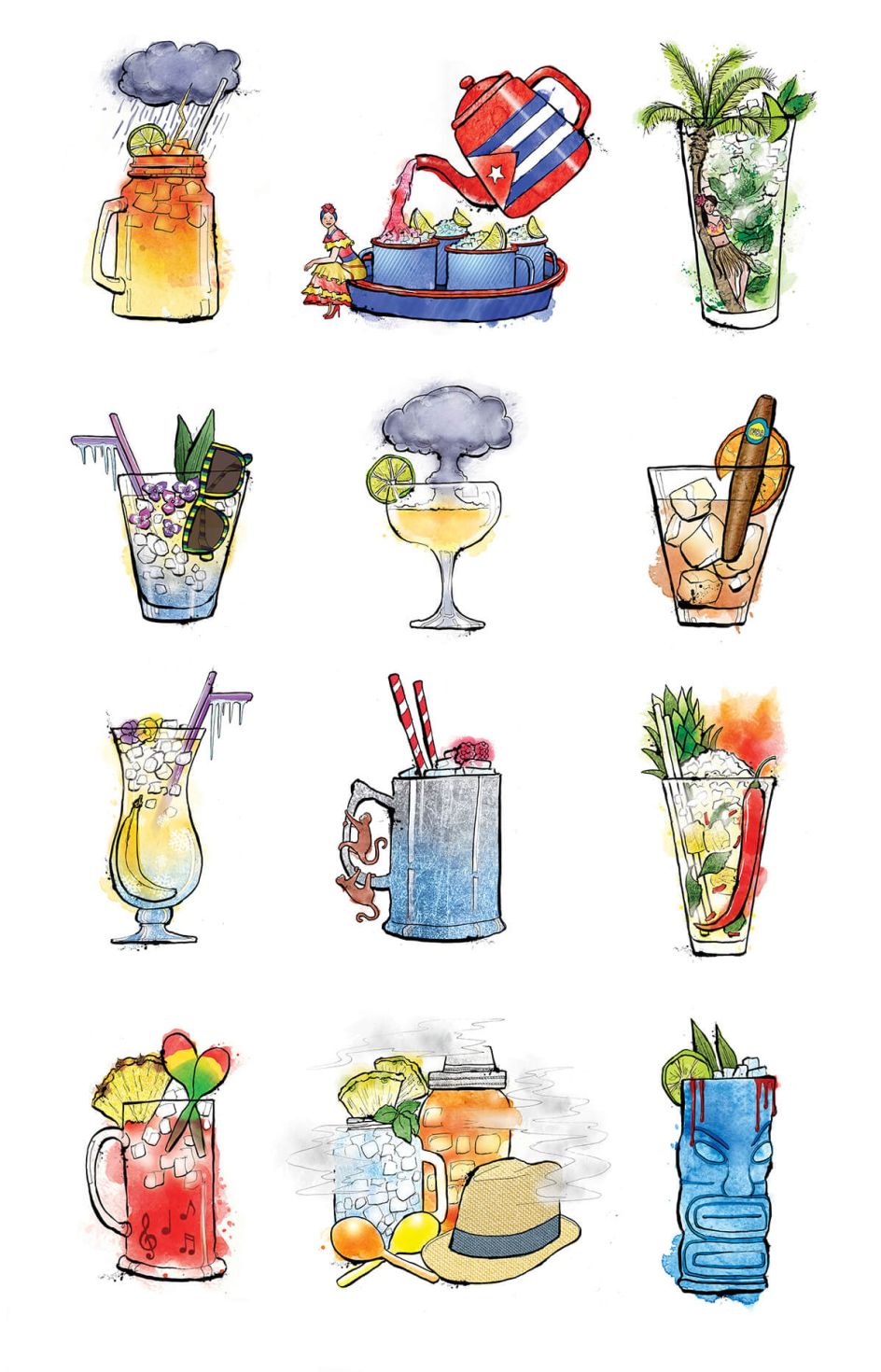
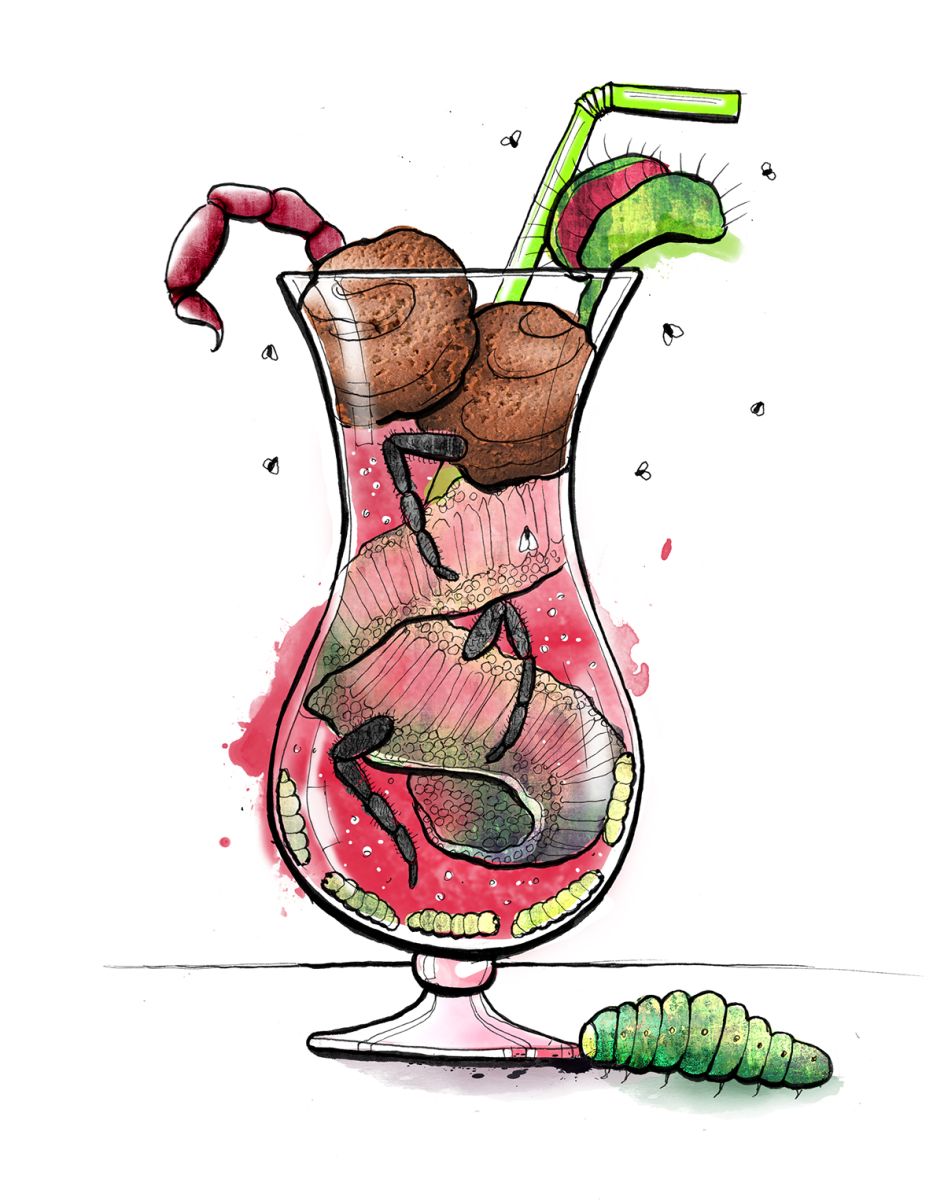
Can you talk us through some recent projects?
I’ve been working on lots of interesting projects – one minute I’m illustrating food and the next I’m designing a book cover. I’ve been working on a lot of heritage work lately, such as children’s guidebooks and maps which is lovely work because it combines both design and illustration.
I suppose the projects I like to talk about the most are my personal projects though, because they always have a bit more personality. I’ve just finished a book called the Glorious Book of Curious Cocktails, which is an utterly useless recipe book of disgusting cocktails. The idea came to me after my little boy saw me illustrating cocktails for a menu and he thought it was hilarious that I added limes and lemons into a drink.
We then spent the next hour or so thinking up crazy ingredients for a new set of cocktails, including frog slime, cat spit and orangutang poo so I made them into a book. I liked the idea of taking something delicious and beautiful and making it absolutely disgusting.
When you're not running your own business, you're out doing talks and workshops. What do you hope people will take away from these?
I tend to do mentoring and talks rather than workshops because I hate telling people how to do their work – I know there’s a place for that but I’d much rather encourage people to go find their own way of working and believe in their own ideas. I think my main aim is to inspire those who lack confidence.
Confidence is often misinterpreted as being extroverted or having an answer for everything, which is rubbish. It’s about believing you’re invited to bring something to the table along with everyone else.
What's the hardest lesson you've learned since going freelance?
That people treat you how you let them treat you. If you quote very little for something all you’re saying is 'my work’s not worth anything'. You can’t moan about your clients taking advantage of you if you’re still saying yes to things you’re not happy about.
It’s not rocket science, yet it took me ages to realise I had to see myself as a business and that I wasn’t being unreasonable for putting boundaries in place. You have to take your work less personally and be cool about asking for money, which is no mean feat. It takes a lot of guts to stick to your guns.
What keeps you up at night?
Mosquitos.
Finally, is there someone who has influenced you? Who and why?
I have so many influences and they’re always changing. They’re not necessarily artists either, but people who have a good ethos or learning processes. One of my main influences has been my dad – growing up he was always fixing or inventing things and I connected with his love of craftsmanship and problem solving.
He had a tiny workshop with a lathe in it and loads of tools, nuts, bolts and random bits of wood. He would always look at shapes or materials inquisitively and see things in them that other people wouldn’t and I find I do the same things with my own work. Perhaps one day I’ll collaborate with my dad on something.
If you enjoyed our interview with Lisa, you can discover more about her work and read her musings at www.lisamaltby.com. Or follow her on Twitter @Lisa_Maltby.
Image credit: Mark Howe Photography




 by Tüpokompanii](https://www.creativeboom.com/upload/articles/58/58684538770fb5b428dc1882f7a732f153500153_732.jpg)


 using <a href="https://www.ohnotype.co/fonts/obviously" target="_blank">Obviously</a> by Oh No Type Co., Art Director, Brand & Creative—Spotify](https://www.creativeboom.com/upload/articles/6e/6ed31eddc26fa563f213fc76d6993dab9231ffe4_732.jpg)








